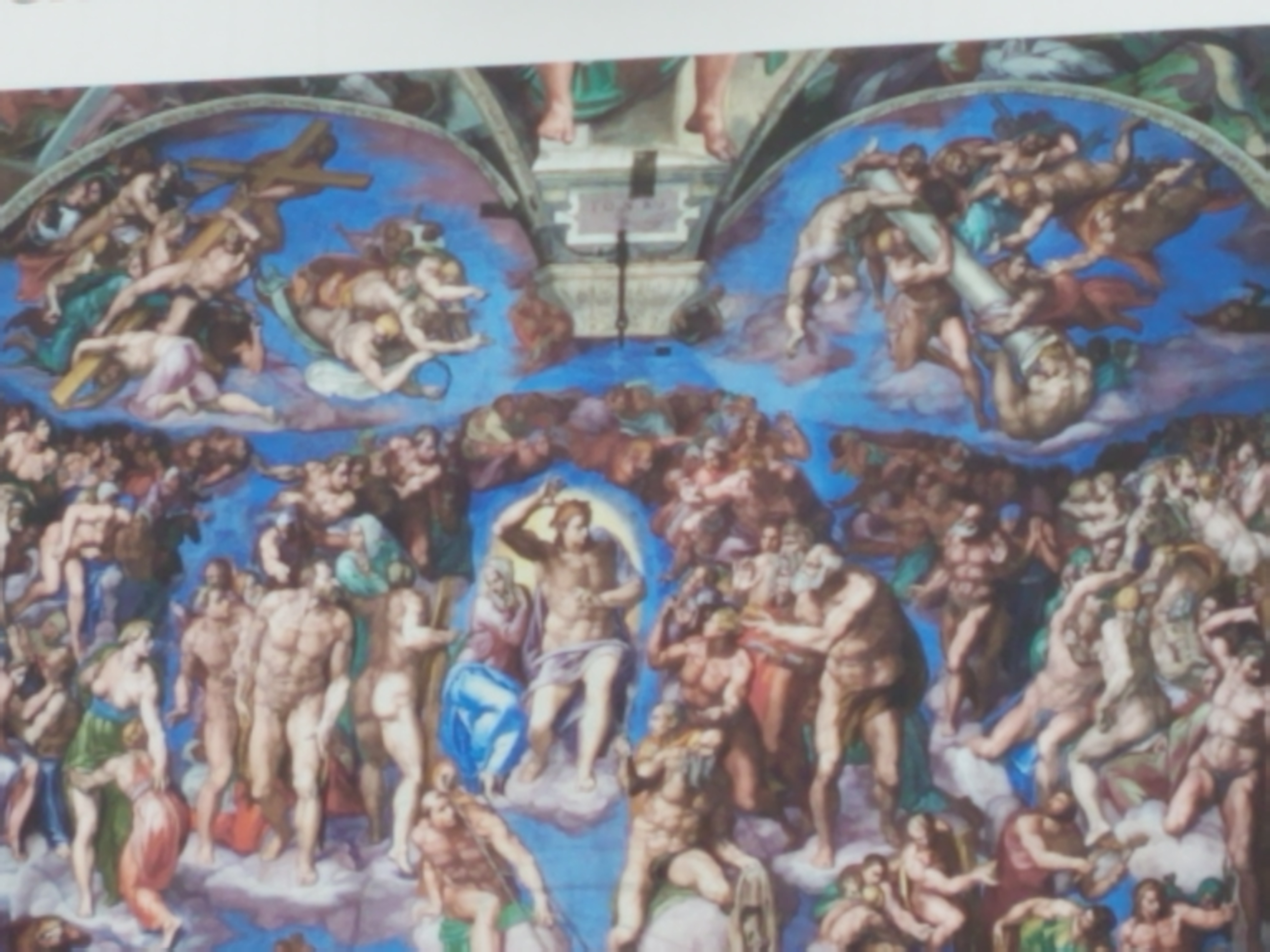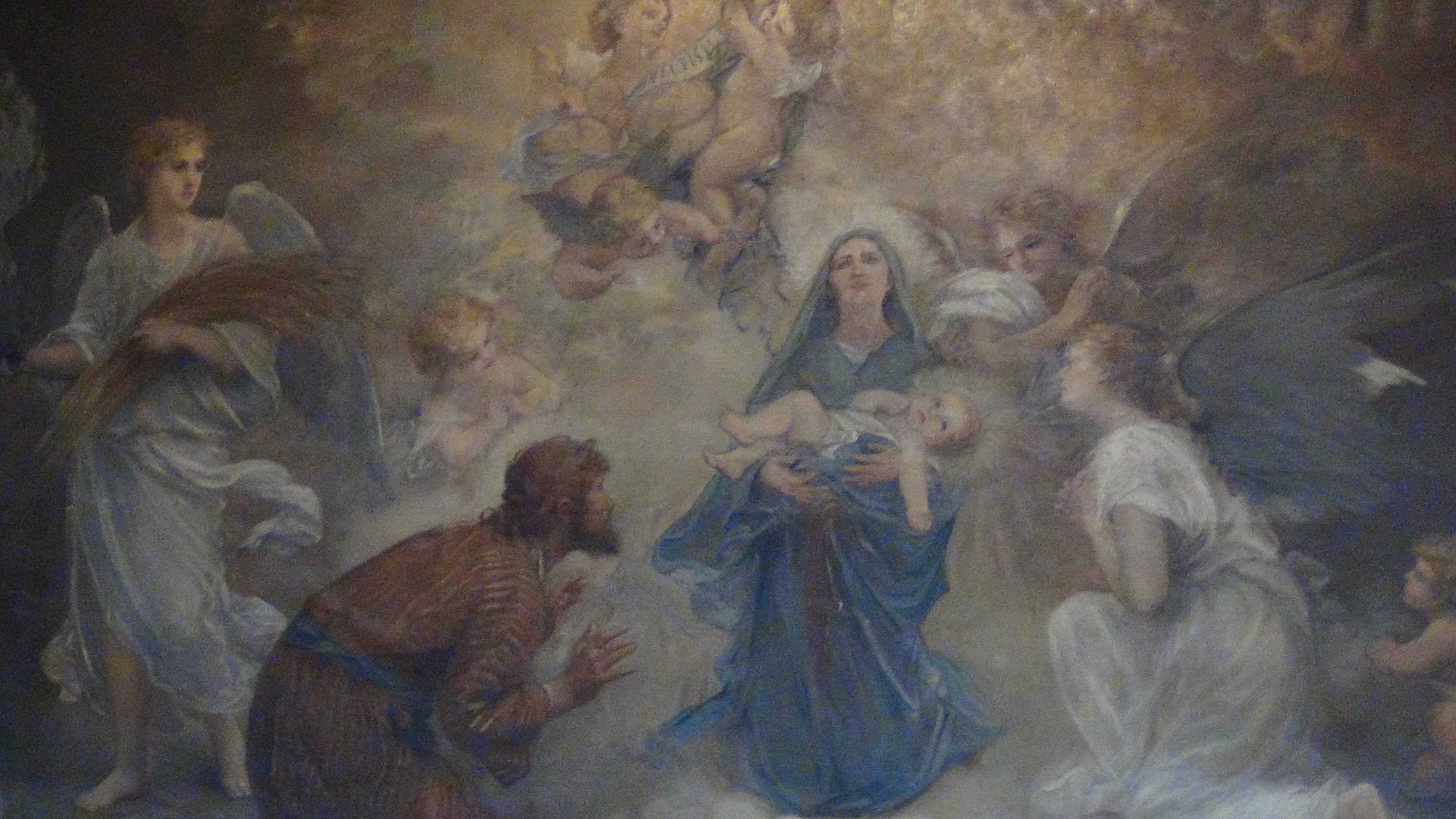Ex. 3:1-8a, 13-15; Ps. 103:1-4, 6-8, 11; 1Cor. 10:1-6, 10:12; Lk. 13:1-9
“Here I am” called by the great “I Am”. God reveals himself to Moses as “I am the God of your fathers.” God is “I am who am” the God of all creation. God is in the spiritual rock and spiritual food the Israelites ate and drank from “and the rock was the Christ”. Here I am this day coming to receive him as we eat and drink from the bread and wine of the Eucharist and the rock is the same Christ. This Lent is our call to respond “Here I am” as we tend to the flock of our daily lives. The place we stand in our church is holy ground and we give reverence not by removing our “sandals” but by removing our sins. Lent is our call to say “Here I am ready to remove my sins with the help of your grace and the love of your kindness and mercy”.
Sin is the “destroyer” as it destroyed a generation of Israelites in the desert. It is far more common for our generation to identify as “being good” than as a sinner as the world defines what is “good”. If we accept the world’s view of “good” then we are standing on shaky ground. “Therefore, whoever thinks he is standing secure should take care not to fall” as St. Paul reminds us in his letter to the Corinthians.
Lent is a time to put ourselves to the test by identifying with the discipline of Lent in the spiritual battle with the flesh. Too often the spirit is willing but the flesh is weak and we fall back into our sins. If we cannot succeed in the small battles of Lent, how will we survive the major attack from the destroyer? “Here I am” to take on the battle of what I can control this Lent in order to build up the spiritual muscle for the battle of what I may not have control over in a world where the evil one “prowls about the world seeking the ruin of souls”.
In overcoming ourselves in the spirit of Lent we become open to receive the graces to overcome the enemy. In the gospel, Jesus reminds the people and us that tragedy is not a sign of our sins “By no means!” We are not greater sinners when tragedy comes our way and in the same manner, we are no less a sinner justified by our good fortune. Tragedy is not a punishment from God. Evil comes upon the just and unjust just as the rain fall upon all. Our purpose is to be ready and repent of our sins so that we may not perish “as they (Galileans) did”. Lent is our call to redemption by our confession as sinners and the mercy of God. Here I am ready to repent and be saved!
The Israelites were “baptized into Moses in the cloud and in the sea”. We are baptized into Jesus by water and the Holy Spirit. The Israelites wandered in the desert for forty years coming to the promise land a journey that only required eleven days to make but by their sins a generation died in the desert. We are called not to wander but to carry the discipline of the cross for forty days to arrive at the promise land of the life, death, and resurrection of Jesus that in Jesus we may never die but live for all eternity. Here I am ready to believe and be saved!
St. Paul in his letter to the Corinthians warns his followers of the things that happened to the Israelites as examples “so that we might not desire evil things”. What evil things do we desire that compare to the Israelites? We desire to make of this world our God, our idolatry from the worship of power, profit, prestige. We desire the power to control not only our lives but often the lives of others. Try this Lenten exercise for one day, try to accept the freedom of will of another person, husband, wife, your adult child and realize just how much we desire control. We desire the profit beyond our needs to have the pleasure of indulgence. The indulgence of our bellies ready to supersize our orders; the indulgence of our eyes stuck to the screen of our phone, television, and computer; the indulgence of our passions because “its all about me” and make it all about the other. We desire the prestige of being “first” not “least”, leader not servant, and proud not humble. Here I am ready to be challenged in our desire for power, profit and prestige by learning to let go, abstain, and be among the least this Lent.
Lent is call to enter into the passion of Christ, to take each day as a walk through the Stations of the Cross in all our struggles without the “grumble” of the Israelites and not perish. We are to look on the parable of the fig tree as a sign of our own life. We are the fig tree and God has planted us for a time on this earth to give fruit. “Three years” for the fig tree represents our fullness of time on this earth and God is waiting to receive the fruit we were destined to produce. If by our own freewill we seek another path and wander in our own desert, the day is coming when we will be on the receiving of the word “cut it down”.
We have however our redeemer ready to cultivate the ground of our souls and fertilize it with the word of truth that we may repent and begin to produce the fruit for the purpose we came into this world. The gardener of our souls and redeemer is Jesus Christ. Lent is our renewal of this personal relationship with Jesus. It is an invitation to say “Jesus, I trust in you” and let go and let God work to change our hearts, mind and will according to his love, a love that is everlasting. Here I am ready to be cultivated by faith, hope, and love and we shall be saved.
“The Lord is kind and merciful…slow to anger and abounding in kindness.” We look at the world and see darkness, war, violence, and death. This is not from God but from the sin within the heart of humanity. It is our self-destruction while the Lord suffers the pain of our sinfulness. We pray for a miracle to end this madness but evil has entered into the world to do its damage. Once God is removed from our institutions the structure of society will collapse from within. The last institution to fall is the family and it begins by removing the “father” from the home through separation, divorce or even by conception without a father.
Recently a caller on Catholic radio asked the host why do Catholics call a priest “Father” if the bible says to call no one “Father” except our heavenly Father. The host asked “Do you sin with your eyes?” She responded “yes”. He then asked “have you plucked your eyes out since the bible says if you sin with your eyes pluck them out?” She responded “Ok, I get it!” and went on to imply that the church will turn things into however it chooses and hung up. The host by his response implied not everything said in scripture is taken literally.
In reflecting on the caller’s question and the response by the host two thoughts came to me. The first was that if our eyes sin then we are to “pluck them out” by removing the sin from our eyes and receive the vision of God through the eyes of holiness. Sin is what we “pluck out, cut off, take out” of our lives. The second was the understanding that we call a priest “Father” from the authority given by Jesus to Peter and the church to be in the person of Christ as Father to his people. As “Father” a priest is given the authority of our Father in heaven to provide us the sacraments that we may come to receive forgiveness, healing, virtues and graces to live holy lives and resist the temptation to sin. “Father” implies the authority of God to shepherd his people.
In the same way we also have by our calling as fathers in the home a divine purpose with authority to be Fathers of God’s love just as women have their divine purpose to be Mothers of God’s love each a complement of the other. If we surrender our children to be “children of the state” by allowing other institutions to determine what is right and wrong, when should the right to life begin and end, who determines sexual identity God or self then the last standing hope for truth will end and confusion, chaos, and tyranny will prevail. Let us not surrender our God given authority to proclaim the word of God with freedom, to teach our children the truth of our faith, and to be witnesses to our faith when challenged to deny or be cancelled by the voices of anger and hate. Here I am Lord ready to profess what we believe and to proclaim it that is to claim it by our actions.
Here I am Lord, ready to be a warrior in the battle for truth, goodness, beauty, and unity in the one body of Christ. Here I am ready to carry the cross that comes from the sacrificial gift of love of God, neighbor, and self. Here I am come to do your will. Amen.




Recent Comments